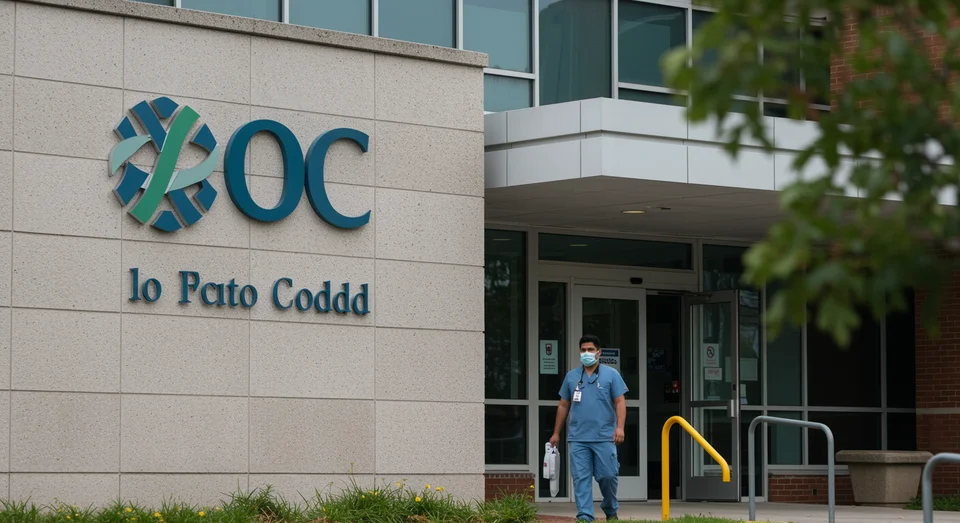Deadly Measles Outbreak in Texas Exposes Gaps in U.S. Public Health System
198 views
The CDC has mobilized its resources to Texas as a deadly measles outbreak grips the state, claiming the lives of two children, including an unvaccinated 8-year-old girl. This surge in cases, part of the worst measles crisis in the United States since 2019, has exposed vulnerabilities in public health infrastructure, exacerbated by recent layoffs. With six outbreaks reported nationwide this year, health officials are urging vaccination as the most reliable safeguard, even as controversial alternative treatments promoted by some public figures spark debate.

A Fragile Shield: Measles Outbreak Tests U.S. Public Health Resilience
The reappearance of measles in Texas has reignited concerns about the fragility of America's hard-won public health achievements. Once declared eliminated in 2000, endemic transmission of the virus now looms as a genuine threat, with outbreaks in Texas and neighboring states serving as stark reminders of how quickly progress can unravel. This year alone, the Centers for Disease Control and Prevention (CDC) has documented six separate outbreaks, pushing total case numbers to their highest in four years. Texas has borne the brunt of this resurgence, with its governor formally requesting federal aid after the deaths of two children underscored the outbreak’s severity.
The CDC’s redeployment of staff to Texas comes at a precarious moment. Recent layoffs within the agency, part of broader budgetary constraints, have hindered its ability to respond swiftly to public health emergencies. The outbreak has laid bare the consequences of such cuts, forcing the agency to stretch its diminished resources across multiple fronts. Experts warn that this strain could impair the nation’s ability to contain future outbreaks of not only measles but other preventable diseases.
At the heart of the crisis lies a troubling gap in vaccination coverage. The measles, mumps, and rubella (MMR) vaccine, long heralded as a cornerstone of disease prevention, remains the most effective tool against the virus. Yet vaccine hesitancy, fueled by misinformation and politicized rhetoric, has left communities vulnerable. The 8-year-old girl who succumbed to the disease in Texas was reportedly unvaccinated, a detail that has reignited debates about personal choice versus public responsibility in health care.
Adding to the controversy are alternative treatments championed by figures such as Secretary Robert F. Kennedy Jr., whose proposals have drawn sharp criticism from medical experts. While Kennedy has advocated for natural remedies and unproven therapies, health authorities have doubled down on the importance of rigorous scientific validation. “There is no substitute for vaccination,” one CDC official stated emphatically, cautioning against the allure of quick fixes that lack evidence. Critics argue that promoting such alternatives not only undermines public trust in proven interventions but also risks prolonging outbreaks by diverting attention from effective measures.
The stakes extend far beyond Texas. Measles is among the most contagious diseases known to humanity, capable of spreading like wildfire in unvaccinated populations. Even a single case can trigger a cascade of infections, particularly in communities with low immunization rates. The virus’s resurgence threatens to erode America’s status as a country free of endemic measles, a designation that has stood as a point of pride and a marker of public health success for over two decades. Losing that status would not only be a symbolic blow but could also have practical implications, including diminished international confidence in the U.S. health system.
The current crisis also underscores the broader challenges facing public health in an era of misinformation and resource scarcity. Vaccine hesitancy, once a fringe phenomenon, has gained alarming traction, fueled by social media platforms that amplify unverified claims. Efforts to combat this trend have met with mixed success, as public health campaigns struggle to counter the emotional appeal of anecdotal narratives. Meanwhile, the erosion of public health funding has left agencies like the CDC ill-equipped to tackle the dual threats of emerging diseases and resurgent ones.
Yet, amid the grim statistics and contentious debates, there are glimmers of hope. Grassroots initiatives aimed at increasing vaccine uptake have shown promise, particularly when they involve trusted community leaders. In Texas, local health departments have ramped up outreach efforts, partnering with schools, churches, and civic organizations to educate the public about the importance of vaccination. These efforts, while labor-intensive, represent a crucial line of defense against further spread.
The resurgence of measles is a cautionary tale, a reminder that even the most advanced health systems are not immune to the consequences of complacency. It challenges policymakers, health professionals, and ordinary citizens alike to reconsider the value they place on collective action in safeguarding public health. As the CDC and its partners work to contain the current outbreak, the broader question remains: Will this crisis serve as a wake-up call, or will it be yet another chapter in the ongoing erosion of America’s public health defenses?
In the end, the answer may lie not in the corridors of power but in the choices of individuals. Vaccination, for all its detractors, remains a profoundly democratic act—one that protects not only the person receiving the shot but also the most vulnerable members of society. As Texas and the nation grapple with the fallout of this outbreak, the hope is that this truth will resonate more powerfully than the voices of doubt.









